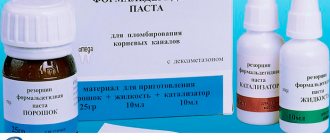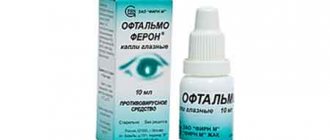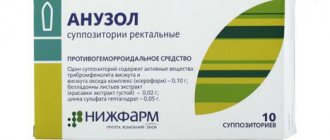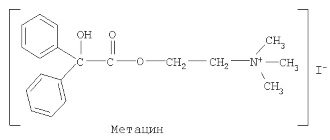Sulgin is an antimicrobial drug used for diarrhea and similar symptoms. The active substance (sulfaguanidine) is absorbed very slowly; the main amount of the drug taken orally is retained in the intestines, which helps the drug accumulate and increase its concentration. Therefore, to prevent overdose and side effects when using Sulgin, the instructions for use must be read and all recommendations followed. This drug has analogues, however, due to its affordable price and good antibacterial effect, a large number of patients choose Sulgin for diarrhea.
Instructions for use
The instructions for the drug Sulgin are on the tablets themselves. It contains information such as drug interactions, indications, side effects, release form, contraindications, use during pregnancy and expiration date. This information should be carefully studied to avoid any unpleasant consequences in the future.
pharmachologic effect
The drug Sulgin is an antidiarrheal agent with a pronounced antibacterial effect. The medication is capable of inhibiting the vital activity of most pathogenic microorganisms belonging to the group of pathogens of intestinal infections. It is not recommended to stop the course of therapy prematurely when the first signs of improvement appear. Otherwise, the effect of the drug will be short-lived.
Pharmacological properties:
- inhibition of the activity of pathogenic microorganisms in the digestive tract;
- accelerating the tendency to recovery from infectious intestinal lesions;
- suppression of typhoid fever;
- normalization of appetite after an intestinal infection;
- elimination of symptoms of diarrhea;
- relief of colitis and enteritis;
- increasing the protective functions of the body;
- relief of attacks of nausea and vomiting (for intestinal infections);
- reduction in the process of thiamine synthesis;
- normalization of nicotinic acid levels in the intestines.
Indications
This drug can be used to treat diseases and conditions such as:
- Enterocolitis, colitis;
- Bacterial dysentery (in chronic or acute form);
- Suspicion or identified pathogens of typhoid fever or dysentery.
In addition, this remedy is used in preparation for surgery on the small or large intestine, as well as as a prevention of relapse.
Method of administration
For the treatment of acute diarrhea, the drug Sulgin is prescribed in a dosage of 2 tablets.
The number of receptions is 5 times. On other days, as the condition improves, the dosage is reduced. Thus, on the second day you need to take the medicine in a dosage of 1 tablet. The number of receptions is 5 times. On the third day you should take 1 tablet, however, the number of doses is reduced to four times. On the fourth day, the medicine is taken 1 tablet 3 times a day and so on in descending order. The effect of taking the medicine can be seen already on the second day after taking it. The maximum allowable dosage can be 7 grams.
For chronic forms of gastrointestinal disease, you should take 0.5 g. The number of receptions is divided by 4 times. Treatment must be continued for five days.
When preparing for surgery on the intestines, you must take Sulgin for 5 days, 2 tablets. The drug should be taken every 8 hours.
To prevent re-infection, it is necessary to take the medicine according to the same regimen, however, the number of days is increased to a week.
Release form
The drug Sulgin is available in tablet form. They have a white tint. The product contains sulfaguanidine, as well as starch, calcium stearate and promogel.
Drug interactions
Therapy with Sulgin reduces the reliability of oral contraceptives several times.
Procaine, as well as benzocaine, reduces antimicrobial activity several times (during hydrolysis it releases para-aminobenzoic acid).
NSAIDs, phenytoin, hypoglycemic drugs, anticoagulants several times increase the side effects of the drug Sulgin.
Hexamethylenetetramine and ascorbic acid increase the risk of developing crystalluria. Myelotoxic drugs enhance the effectiveness of the drug Sulgin.
Release form and composition
Dosage form – tablets: white [10 pcs. in contour-free packaging, 1 package in a cardboard pack, 100 packages in a cardboard box (for hospitals); 10 pcs. in blister packs, 1 or 2 packs in a cardboard pack; 10 or 20 pcs. in polymer or orange glass jars, 1 jar in a cardboard pack].
Active substance: sulfaguanidine, 1 tablet – 0.5 g.
Auxiliary components: potato starch, Primogel, calcium stearate.
Side effects
During treatment, the patient may experience side effects, which are expressed in diseases and conditions such as:
- Apathy, dizziness, tremor, and pain in the head;
- Neutropenia, anemia, thrombocytopenia, and agranulocytosis;
- Bronchospasm;
- Vomiting, diarrhea, anorexia, cholestasis, glassitis, hepatitis, nausea, gastritis, stomatitis, increased transaminase concentrations;
- Polyuria, hypercreatininemia, oliguria, nephropathy, anuria, nephritis, hematuria, crystalluria;
- Fever, photosensitivity, itching, erythema, necrolysis, angioedema, skin rash, allergic myocarditis;
- Arthralgia or myalgia.
If this condition occurs, then you need to stop taking it and rinse your stomach. During treatment, it is necessary to consume large amounts of water, as well as forced diuresis.
Overdose
A single overdose of Sulgin can cause an attack of vomiting or dizziness. In the presence of hypersensitivity to individual components, the risk of loss of consciousness increases. If overdoses are allowed regularly, the consequences can cause serious pathological processes. These include sudden tremors of the limbs in combination with convulsive conditions, kidney damage, anorexia, allergic myocarditis and a significant increase in urea levels.
Other serious consequences of overdose:
- bronchospasms;
- thrombocytopenia;
- anemia;
- angioedema;
- crystallurgy;
- toxic nephropathy;
- febrile conditions.
Contraindications
It is not recommended to prescribe this drug if the patient has such conditions as:
- Nephrourolithiasis, porphyria;
- B-12 deficiency anemia;
- Allergy to certain substances included in the product;
- Hyperbilirubinemia, as well as deficiency of glucose 6-phosphate dehydrogenase.
In addition, this medication should be avoided if the patient is an infant.
Pregnancy period
Based on the instructions, drinking the medicine Sulgin during pregnancy or breastfeeding is strictly prohibited. This is due to the fact that at this time the load on the girl’s genitourinary system doubles.
During lactation, the active substance of the drug Sulgin, together with mother's milk, can enter the baby's body. After exposure, the child may experience fever, vomiting, and loose stools. This is due to the fact that the drug has a high degree of toxicity.
Features of the medicine
What does the drug “Sulgin” help with? According to the attached instructions, this product has antidiarrheal and antibacterial effects. It exhibits high activity against gram-negative and gram-positive bacteria, including pathogens of intestinal infections.
The medication in question is rather poorly absorbed when administered orally. It acts mainly in the intestinal lumen.
The active substance of this drug, sulfaguanidine, inhibits dihydropteroate synthetase and competes for receptors with para-aminobenzoic acid. This effect of this component leads to a slowdown in the biological synthesis of tetrahydrofolic acid, which is necessary for the synthesis of purines and pyrimidines in the cells of the pathogen.
special instructions
Impact on the ability to drive vehicles and operate machinery
The drug can provoke disturbances in psychomotor reactions and deviations from the nervous system if there is a special sensitivity of the body to its components.
Pregnancy and lactation
Sulgin is not suitable for use during pregnancy and breastfeeding. Substances from its composition penetrate the placental barrier and can cause harm to the fetus. A negative reaction is possible from the vital systems of the newborn baby’s body.
Use in childhood
For children under three years of age, Sulgin is prescribed only in case of emergency (the medication is prohibited for use in newborns). From the age of three, the drug must be taken according to the instructions or the course recommended by a specialist.
For impaired renal function
Urolithiasis is one of the contraindications for taking Sulgin (in the presence of other chronic or acute kidney pathologies, additional examination is necessary).
For liver dysfunction
There are no liver diseases on the list of contraindications for taking Sulgin, but in the presence of chronic or acute pathologies, self-medication should be excluded. The doctor must decide whether to use the drug.
Conditions for dispensing from pharmacies
Over-the-counter sale in pharmacies.
Pharmacological group
The medicinal substance belongs to the type of antimicrobial drugs of the sulfonamide group and is used for various diseases of the digestive system.
The drug acts against the following microorganisms:
- Escherichia coli.
- Streptococcal bacteria.
- Staphylococci.
- Escherchia coli.
- Shigella dysentenae.
- Proteus vulgaris.
Price
The cost of the drug Sulgin is based on a number of factors, for example, the markup of the pharmacy. Prices may vary significantly in different countries. This article provides approximate costs. If you need to get accurate data, you need to contact your nearest pharmacy.
Russia
For tablets of the drug Sulgin you will have to pay 45 rubles.
Ukraine
The medicine Sulgin costs on average 23 hryvnia.
Video on the topic: Dysentery
Sulgin reviews
The drug Sulgin is quite effective and reliable for the treatment of diarrhea of any form. My mother went to the doctor when she had severe abdominal pain with diarrhea. No medicine she took gave long-term results, and the pain was relieved only for a while. After the doctor prescribed this medicine, almost after a few days the pain and colic disappeared, and the stool completely returned to normal.
Acute intestinal infections are conventionally classified into 3 subgroups according to pathogens - bacterial, viral and protozoan. This type of digestive pathology includes more than 30 diseases.
Analogs
It should be understood that only a specialist can select an analogue, i.e. pharmacist or attending physician.
Analogues of this drug are such drugs as: Zerit, Ftalazol, Insuman, Intrazolin, Intal, Amixid, Ftazin, Bactrim, Brifeseptol, Co-trimoxazole, Furazolidone, Oriprim, Sulotrim, Ftazin, Brifeseptole, Berlocid, Metosulfabol, Sinersul, Dvaseptol.
- See our article “The best folk remedy for gastritis!” To get rid of it QUICKLY and FOREVER...
- How to get rid of gases in the intestines and why do they occur?
- Activated carbon cleaning - is it worth starting?
Overdose
Incorrect use of Sulgin may result in the following symptoms of overdose:
- nausea;
- vomit;
- dizziness;
- severe pain in the abdominal area;
- nervousness;
- stomach upset;
- loss of consciousness;
- lack of appetite.
If such symptoms appear after using the substance Sulgin, it is necessary to stop medical therapy and use drugs with a sorbing effect on the body.
If unpleasant symptoms do not stop, you must contact a medical facility.
Price
The medicinal substance Sulgin has the following cost:
- 10 tablets – 60 rubles ;
- tablets 20 – 90 rubles .
If it is necessary to use Sulgin Avexim, the cost will vary up to 100 rubles for 10 pieces.
Storage conditions
It is recommended to store the medicinal substance Sulgin in a dark place out of reach of children. Shelf life: no more than 4 years from the date marked on the package.
Drug interactions
The medicinal substance Sulgin has the following features of drug interactions:
- Not for use with benzocaine, novocaine and other similar drugs.
- Differin has the ability, when interacting with Sulgin, to cause an increased level of side symptoms of the latter.
- Use with drugs containing ascorbic acid increases the acidity of the patient's urine.
Complex therapy is prescribed for each patient individually, depending on the characteristics of the body.
Sulgin and alcohol
The drug Sulgin is not used with alcoholic substances, which reduce the therapeutic effect of the tablets and increase side symptoms.
Effect of the substance on the ability to drive vehicles
There were no cases of influence on driving, therefore the substance Sulgin is used for this category of patients.






